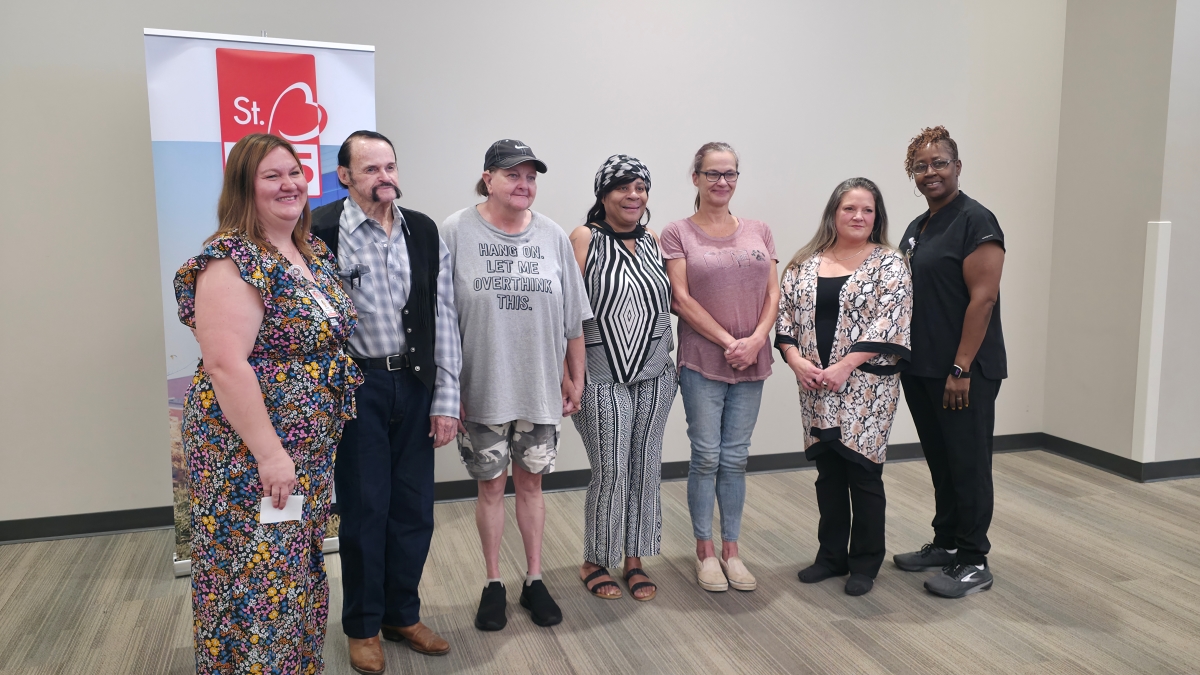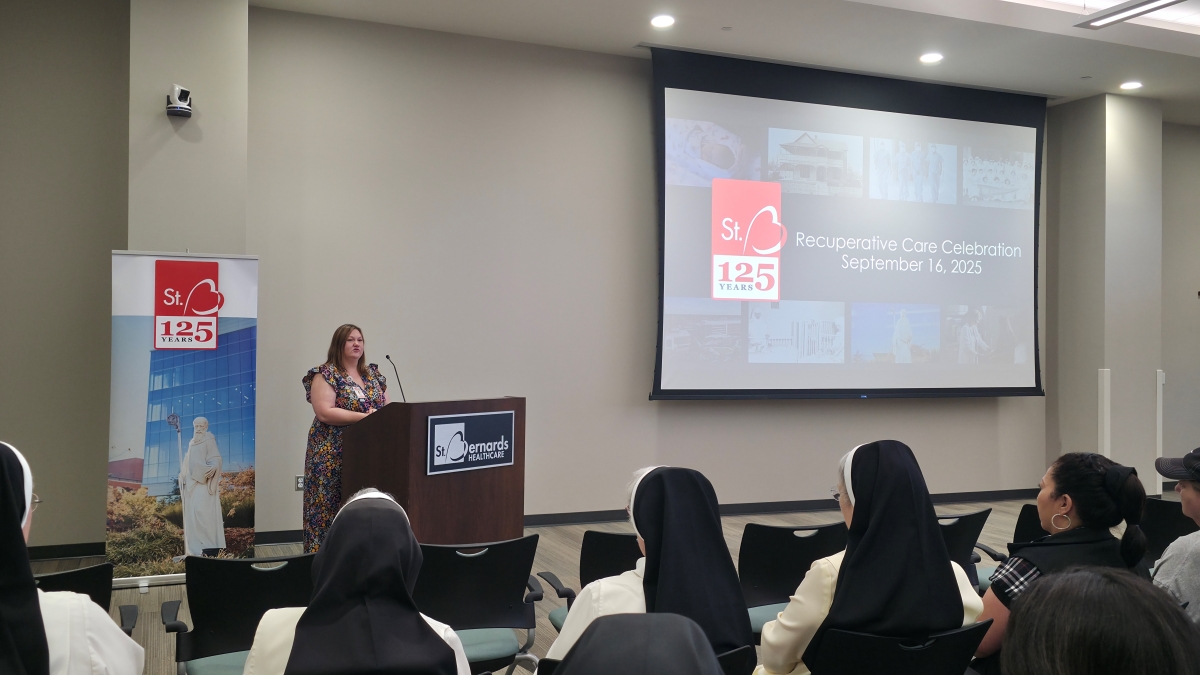Jonesboro, AR – (JonesboroRightNow.com) – Sept. 16, 2025 – In its first year of operation, a homeless support program in Jonesboro has helped multiple people transition from instability to stable housing, and officials aim to do even more with it.
Staff and community members joined together at the St. Bernards Community Room on Wednesday to celebrate the first year of its Recuperative Care program and its accomplishments.
Several speakers spoke about the program and its influence, including Jonesboro Mayor Harold Copenhaver and Craighead County Judge Marvin Day. Non-perishable food donations were also collected for participants in the program.
Health equities manager Danielle Lawrence said the core mission of the Recuperative Care program is to help people who are homeless or at risk of homelessness find a place to stay or remain in stable housing.
“We help individuals with rental application fees, rental deposits, utility deposits, if they’re behind on rent, and we’re trying to prevent eviction, we can pay rental errors. We don’t have a cap on that right now. Usually, we try to keep it under about $2,500, though,” Lawrence said.
The program is Lawrence’s idea, who said she was inspired to move forward with it after her sister’s passing at the age of 19. She explained that her sister suffered from schizophrenia and was homeless in Jonesboro when she died in 2023. Plans for the program had already been in the works when Lawrence’s sister died.
“I really dug my feet in, with a lot of help from a lot of individuals here at the medical center, and we were able to open in June 2024,” Lawrence said.
The program began accepting clients in June, but an official ribbon-cutting for the center was held in July 2024.
The importance of having supportive services for clients is one of the reasons why they have a temporary shelter containing four beds located at the Craighead County Crisis Stabilization Unit. Lawrence said those who choose this option can stay there up to 90 days while given intensive case management.
“[We] kind of teach them daily life skills, building back on their financial literacy, teaching them how to pay bills, learning how to apply for housing, because that can be a little confusing for somebody who hasn’t done it in a while,” Lawrence said.
Since the program began, Lawrence said one of its greatest accomplishments has been getting people off the streets and into stable housing, having had 35 participants with successful outcomes so far, with a goal of 50 for its second year.
Testimonials from participants in the program were also shown, including one from Raeco Lewis, who joined the program while staying at St. Bernards Medical Center. She said at the time, she was homeless and had nowhere to go.
“When I got in the program, there were people trying to help me, and they were letting me know that it’s going to be OK. I knew then it was going to be OK,” Lewis said.

Since then, Lewis said she has seen big improvements in her life. Not only was she able to get back on her medicine and find a job, but the program also helped Lewis find a place to live.
One of the biggest challenges the program has faced, according to Lawrence, is that some of the people going through it may not be ready for housing, specifically those facing mental health issues.
“Maybe they’ve been in survival mode for so long that once we kind of get them into the program and start talking about being stable again, it really scares them. So, we have had some individuals just request to discharge from the program before we actually got to the housing portion,” Lawrence said.
With year one behind the program, Lawrence said the primary goal for year two is overall stability, ensuring that all of its clients’ needs are met, not just housing.
In the future, Lawrence said they also hope to expand beyond the four-bed unit, having its own facility that would mirror the Crisis Stabilization Unit, but be specifically used for those without a home. The aim would be somewhere between 12 to 16 beds in the facility.
Overall, Lawrence said she wants people to keep an open mind about homelessness and understand why people may be in the situations they are in.
“We have lots of individuals that are working 40 hours a week, some 60 hours a week, that end up in a terrible situation and end up homeless,” Lawrence said. “Not every homeless individual has a substance abuse issue, not every homeless individual has a mental health issue, but every homeless individual deserves respect and dignity.”
If you or someone you know would like to get into the Recuperative Care program, Lawrence said referrals can be taken from any social services agency or any St. Bernards entity.
Referrals can be emailed to drlawrence@sbrmc.org. You can also call 870-207-3070 for more information.


